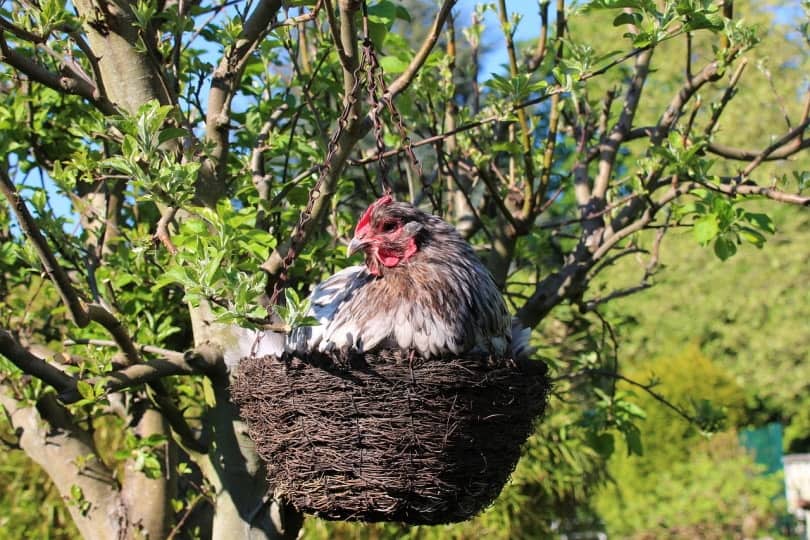Approved by Dr. Luqman Javed
There’s a popular myth that chickens only lay eggs for 2 years. This myth comes from the fact that commercial egg farms only keep their layers for two years. However, this is not because the chickens stop laying eggs.
A chicken’s egg production tends to slowly drop off its peak by the time they are over 2 years old, producing fewer eggs each subsequent year until they eventually completely stop laying. For most hens, production stops at around 5 years of age, though some breeds may continue to lay a few eggs until they are about 6 or 7.
For a commercial egg farm, this reduction in egg production is critical to their business, but for a hobbyist chicken keeper, one or two fewer eggs per week isn’t usually a huge problem.

Timeline of Egg Laying Productivity in Chickens
Most egg-laying chickens will lay their first egg around 18 weeks of age. Once they’ve laid their first egg, they’ll begin laying eggs almost daily. A well-fed laying chicken should produce about 250 eggs yearly in their youth.
Each year, your chickens should lay fewer eggs than the years before that. This reduction will continue until they reach about 6 to 7 years old, when they’ll go into “retirement” and stop laying eggs for the most part. An older laying chicken may still lay the occasional egg even well into retirement, but there won’t be the same sense of consistency that they had in their youths.
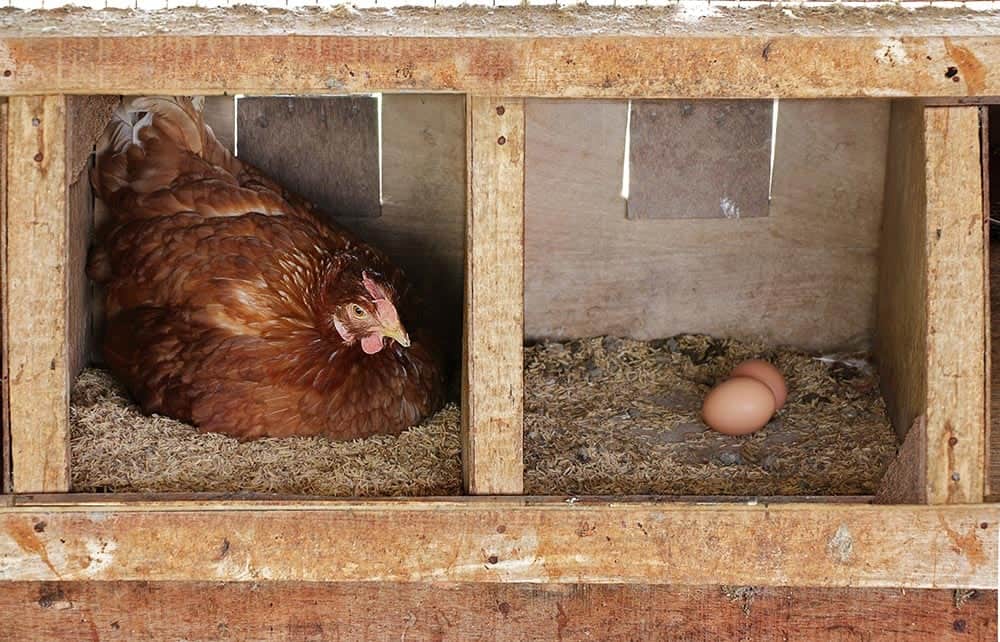
The 3 Signs That Your Hen Has Stopped Laying
If your flock isn’t all the same age, it can be tough to tell which chickens are laying eggs and which ones aren’t. However, for consistency in record keeping, it’s best to keep track of your chicken’s age. There are many telltale signs that your chicken has stopped laying that farmers can use to determine which chickens have started to reach retirement age.
1. Her Combs and Wattles Have Faded
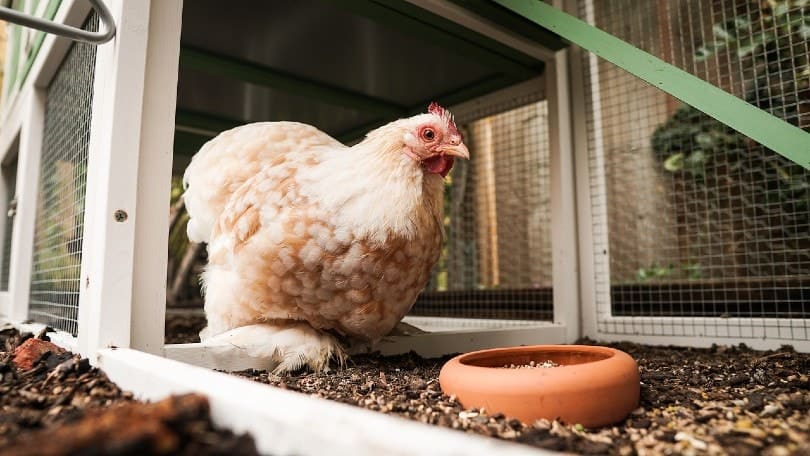
A healthy, laying chicken will have deep pigment in her combs and wattles. If her combs and wattles have started to look dull and colorless, this could be a sign that she isn’t laying eggs anymore.
2. Her Vent Is Dry
If a hen is laying eggs, her vent is somewhat red and moist. If your hen has stopped laying eggs, her vent will likely appear very dry and somewhat dusty in appearance.
3. Abdomen
In laying hens, the abdomen is often very soft and supple. If you gently scoop up your hen and carefully touch her abdomen and notice that it’s somewhat hard in consistency and very firm, then she’s probably stopped laying eggs.
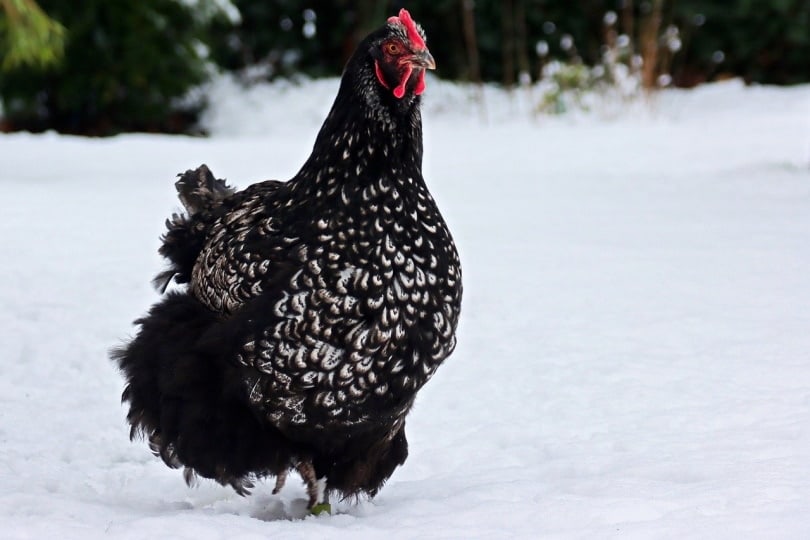
While it may seem counterintuitive, a healthy egg-laying chicken might have some broken or dull feathers. Her body isn’t putting as much energy and resources into maintaining her coat; she has eggs to lay! If your chicken’s coat is unusually downy and smooth, this could be a sign that she’s stopped laying eggs.

Why Has My Chicken Stopped Laying Eggs?
There are many reasons your hens may have stopped laying eggs. If you’re sure your hens are in the proper egg-laying age range, but you aren’t finding eggs, it’s time to consider why.
Your Hens Are Too Young or Too Old
If you’ve only recently brought your hens home, then there’s a possibility that you were misled to believe that they were older or younger than they truly are. A visit to a livestock veterinarian can help you determine the actual age of your flock.
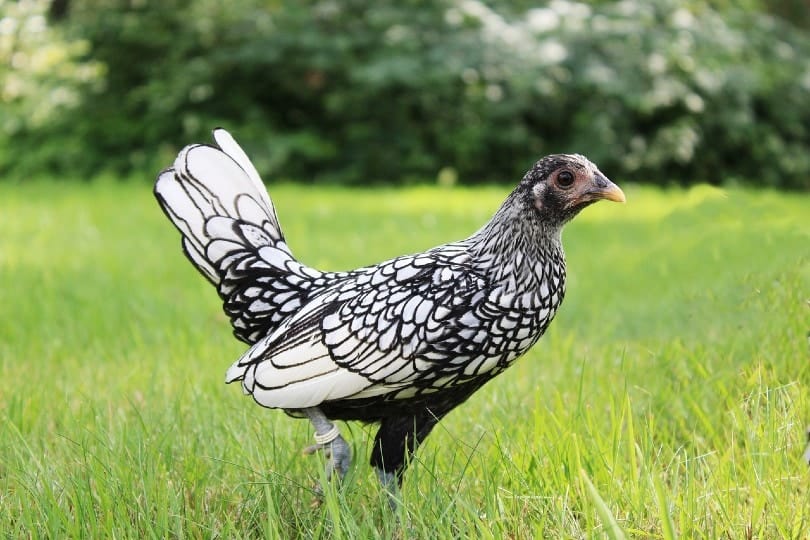
It’s Winter
Some egg-laying breeds lay eggs year-round when exposed to the correct amount of sunlight, but not all of them do. Most hens will stop laying eggs between the winter solstice and the spring equinox. If you live in an area where the length of the day doesn’t change much, your hens may lay eggs more frequently or not stop at all.
They’re Molting
During summer and autumn, your chickens will molt their feathers, meaning they’ll lose their feathers and grow new ones. They will lay fewer eggs during the process of molting. In some instances, they may stop laying altogether. So if they’re currently molting or have recently molted, they may not be laying eggs because of it.
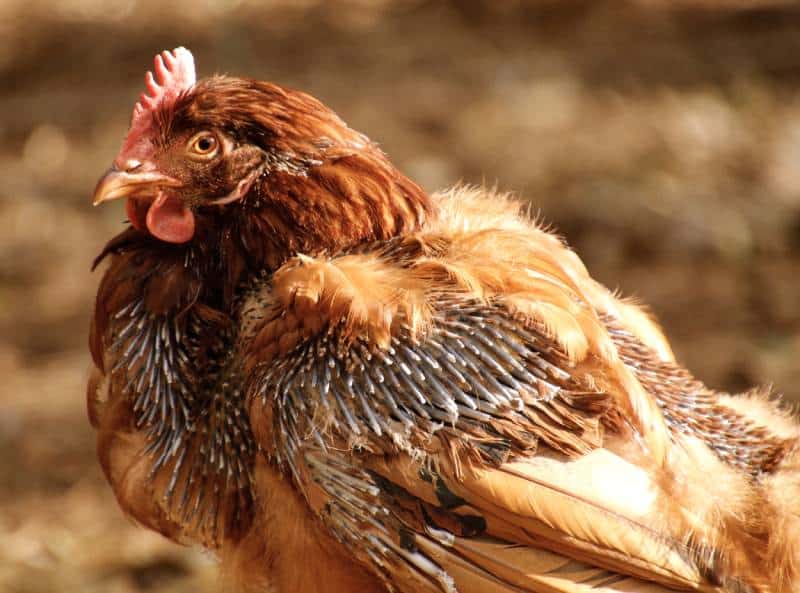
They’re Feeling Broody
The term “broody” in hens means that she wants to incubate and hatch her eggs then raise the chicks. She won’t want to hand over the eggs to you because she wants to hatch them and may become defensive of her eggs, including eggs that aren’t hers.
Broody hens may only eat once a day, leaving the nest only to eat and drink.
Your hen won’t know that her eggs aren’t fertile, either. Even if there’s no rooster in your flock, she won’t understand why her eggs aren’t hatching. If the eggs are fertile, it’s essential to separate her from the rest of the flock for her comfort and safety. The normal incubation period for fertilized chicken eggs is 21 days.
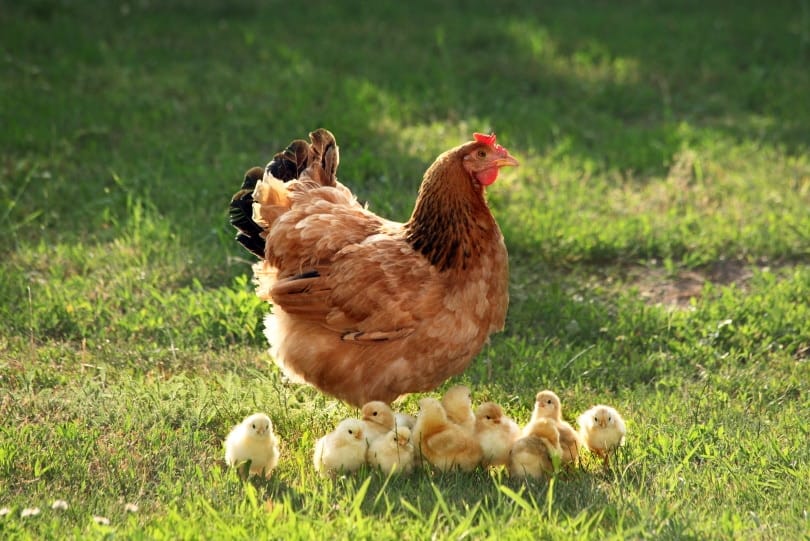
They’re Stressed
If your hens are stressed out, they may not lay eggs. They may also lay misshapen eggs when stressed. These eggs are known as “body checked eggs,” and they occur when the body attempts to but cannot repair damage to either the egg or its shell.
They’ve Got an Improper Diet
A diet that is lacking in calcium could cause your hens not to lay eggs. Make sure they’re eating enough food and that the food is providing proper nutrition for them.
They’re Ill
Hens may also stop laying eggs if they’re ill. A prolonged period of not laying eggs or laying misshapen eggs can be the first indicator of an illness or parasite. If your hen hasn’t been laying eggs for a while, having her checked by a livestock veterinarian can help clear up any concerns and get her back to laying eggs properly.
They Are Laying Eggs; You Just Can’t Find Them
There’s also the possibility that your hens are laying eggs outside the nest box or eating their eggs. Look around in other places that your hens frequent to see if they’re laying eggs outside of the nest box and look for signs of broken eggs to see if they’ve been snacking on their eggs out of hunger.
Additionally, look for signs of intrusion in your chicken coop. Various small predators like rats will steal and eat a hen’s eggs for sustenance. If you can’t find the eggs but there’s nothing wrong with your chickens, someone may be getting to them before you.
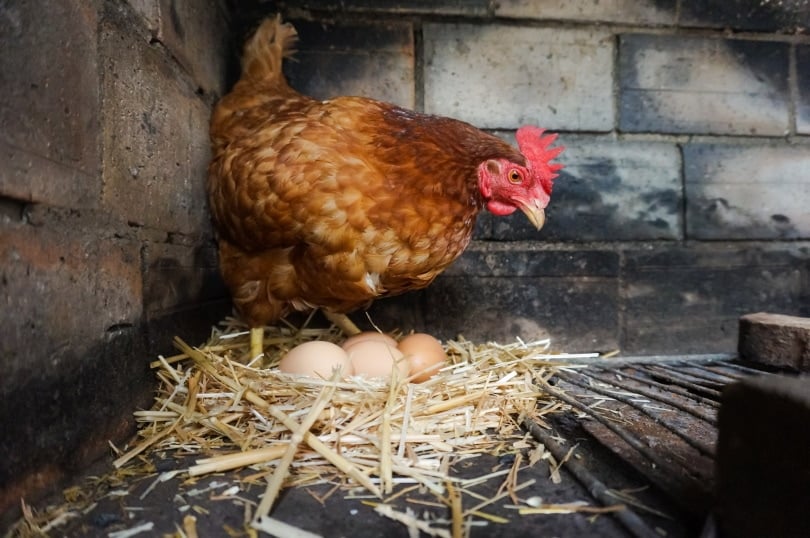
Final Thoughts
There are many reasons that your hens may not be laying eggs. While most of them are benign, ensuring that your hens are healthy is critical. Consult with a veterinarian if your hens have stopped laying eggs suddenly. An experienced livestock veterinarian will be able to determine if your hens need time or some extra tender love and care to get back to laying eggs properly.
Featured Image Credit: Andy M, Pixabay
